Have you ever wondered when and how a child’s self-confidence begins to form? You may be fascinated to know that by age 5, children have a sense of self-esteem comparable in strength to that of adults.
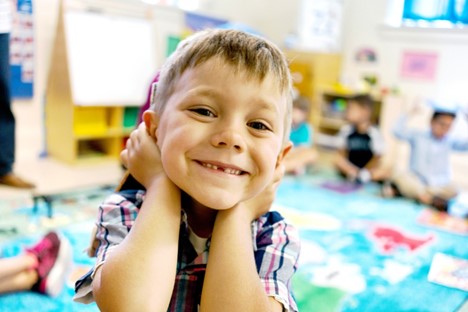
High Quality
Pre-K Education
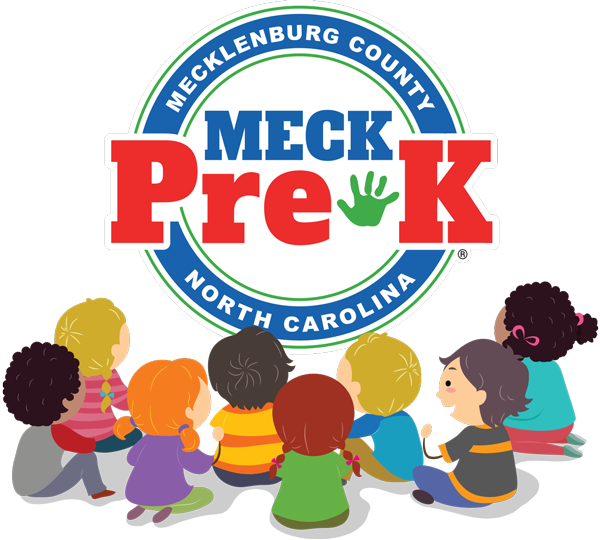

High Quality
Pre-K Education
MECK Pre-K Blog
MECK Pre-K Blog
Tag Archive:

Have you ever wondered when and how a child’s self-confidence begins to form? You may be fascinated to know that by age 5, children have a sense of self-esteem comparable in strength to that of adults.
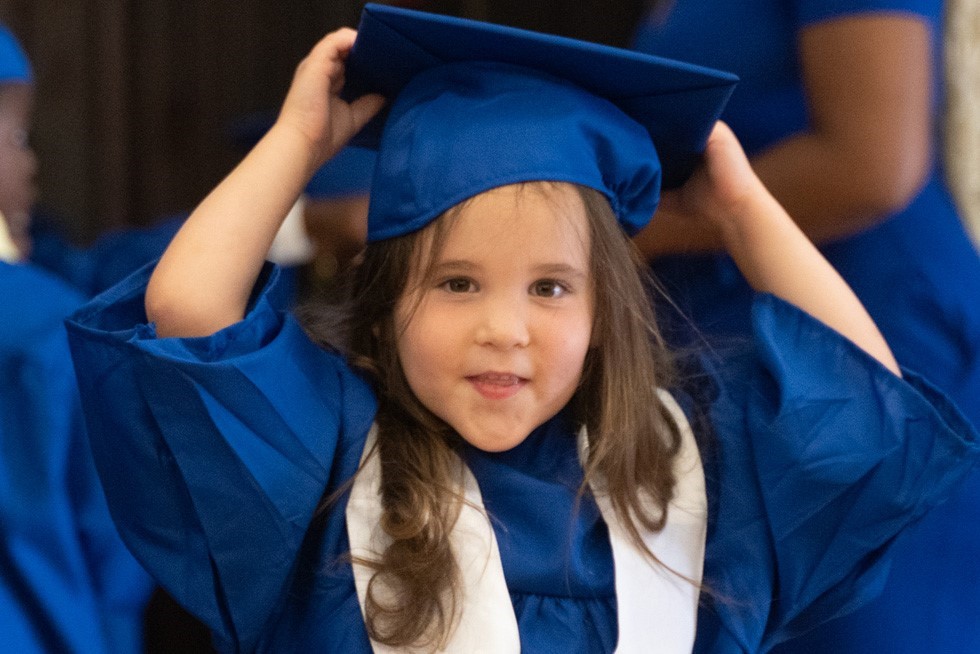
The months of May and June are graduation season in many areas of the country. Graduations are important milestones in a young person’s life, helping them to recognize what they have learned and achieved, and encouraging them that they are ready for a new challenge.
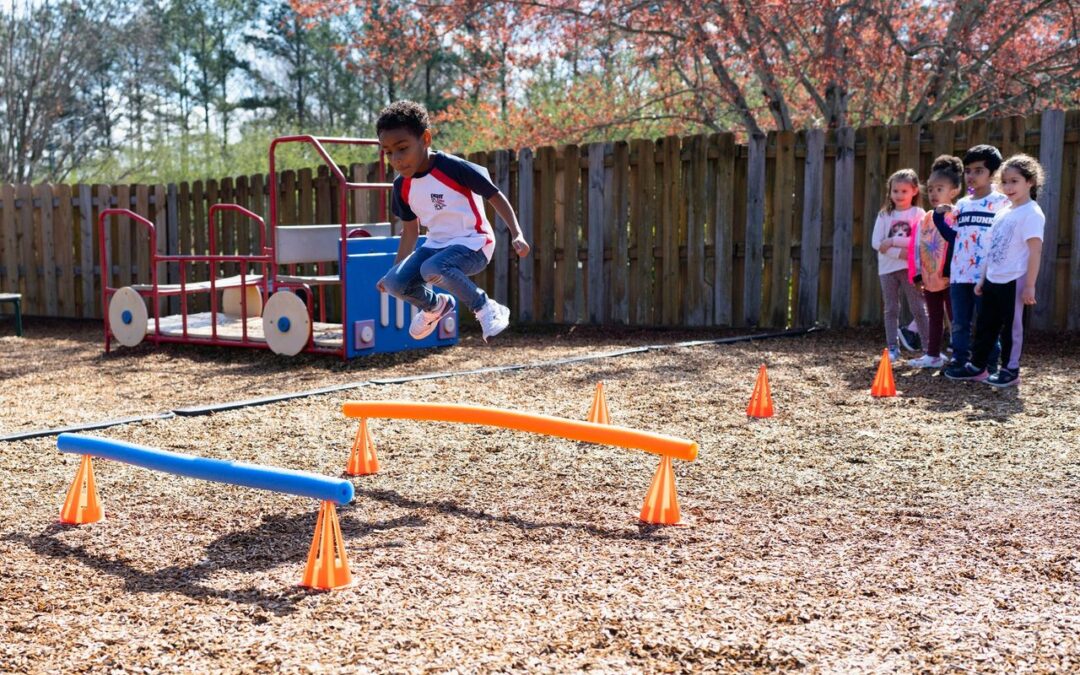
Congratulations, your child has graduated from pre-K, and they are starting kindergarten in the fall! Now you may be wondering, “How can I help them hold on to everything they learned in pre-K over the summer?” Here are a few ideas, including free things to do over the summer.
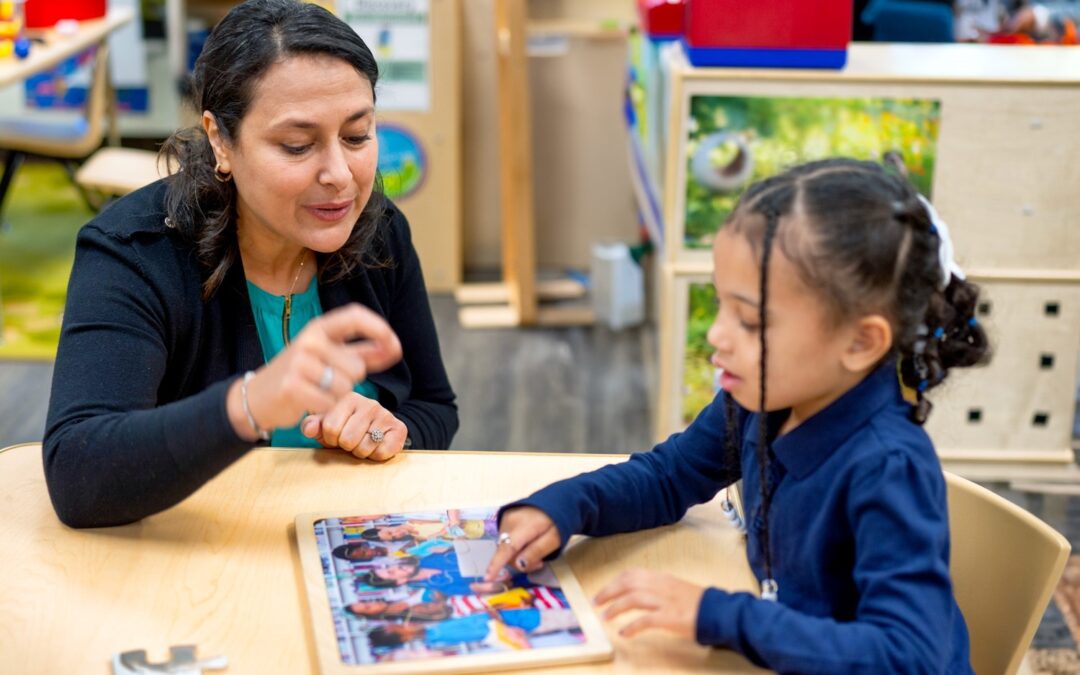
In honor of Teacher Appreciation Week, we are celebrating teachers, and the many ways that quality educators impact a child’s life in a positive way. We’re also talking about how high-quality pre-K programs cultivate and support teachers so that they can bring their best selves to the classroom.
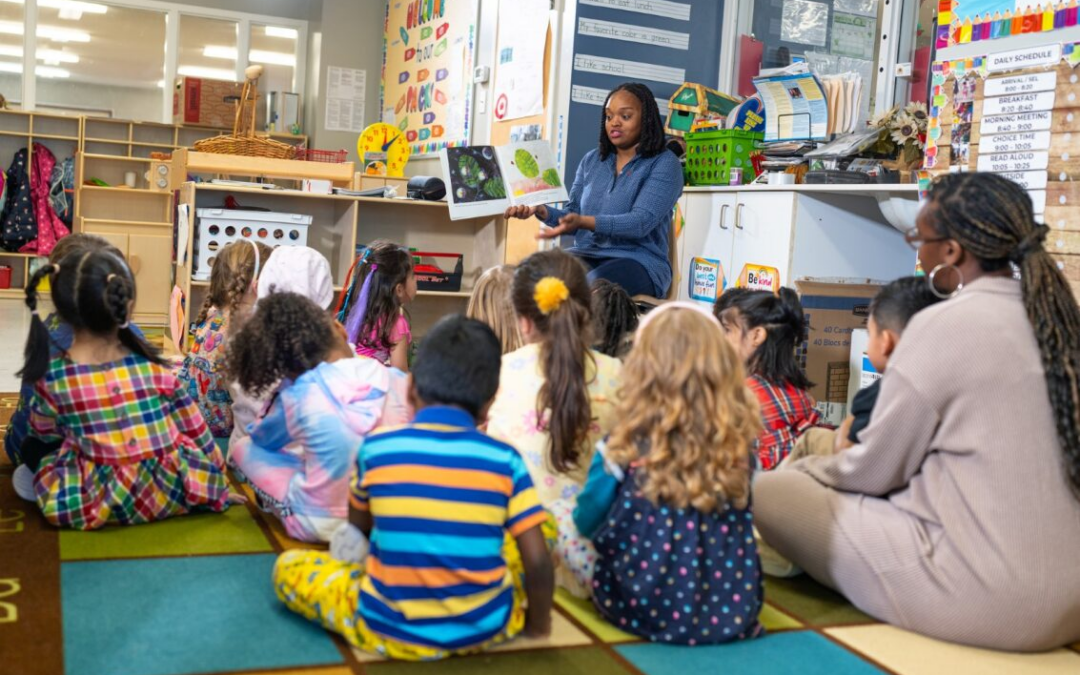
Most of us can remember a time when we curled up with a book as a child. We might have gotten lost in the story, not realizing how much time had passed.
But what about today’s young children? With videogames, streaming television, and other distractions, it may seem like an uphill battle to get them away from screens and into reading. But there’s good news: high-quality pre-K programs offer lots of opportunities for children to develop their reading skills in a fun and stimulating way. With well-trained teachers, age-appropriate books, and an engaging curriculum, children in pre-K develop literacy skills and confidence that can lead to a lifetime of reading for learning and enjoyment.
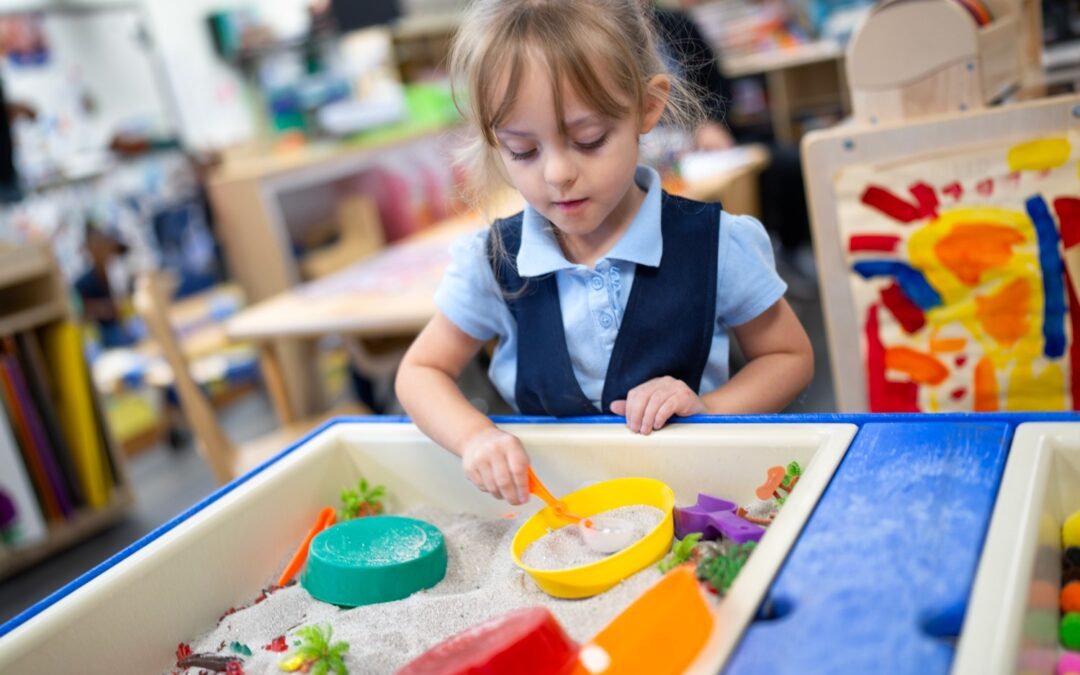
Have you ever walked into a pre-K classroom? You might see colorful decorations on the walls, child-sized furniture, and maybe even dress-up clothes. You might think, “this is cute.” But there is so much more that goes into the design of a pre-K classroom! A high-quality pre-K program will follow best practices based in the latest pre-K research to create an environment for learning and growth. Let’s break down some of the elements that go into designing a pre-K classroom.
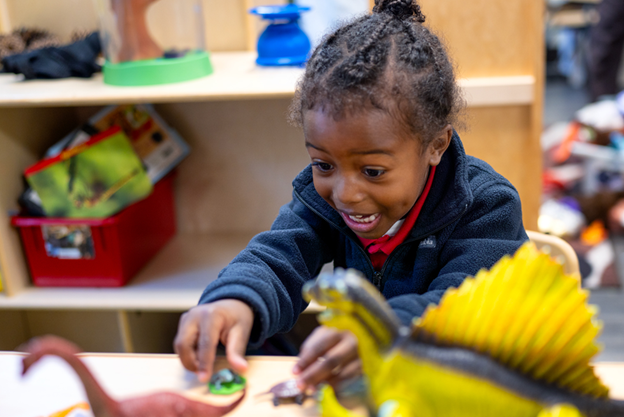
MECK Pre-K students spend each day learning, practicing real life skills and expanding their knowledge. Teachers are trained to follow a child’s interests, build on previous knowledge, and provide real world experience based on that knowledge.
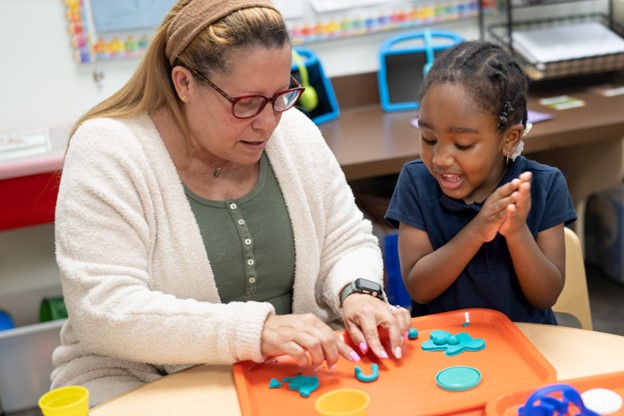
You may be surprised to know that pre-K teachers hold parent-teacher conferences, just like teachers in older grades! The main difference between an elementary and pre-K parent-teacher conference is the developmental age of the child. Children in pre-K are developing skills that will be used later in elementary school. So the topics you discuss with their teachers will focus more on pre-K skills and development.
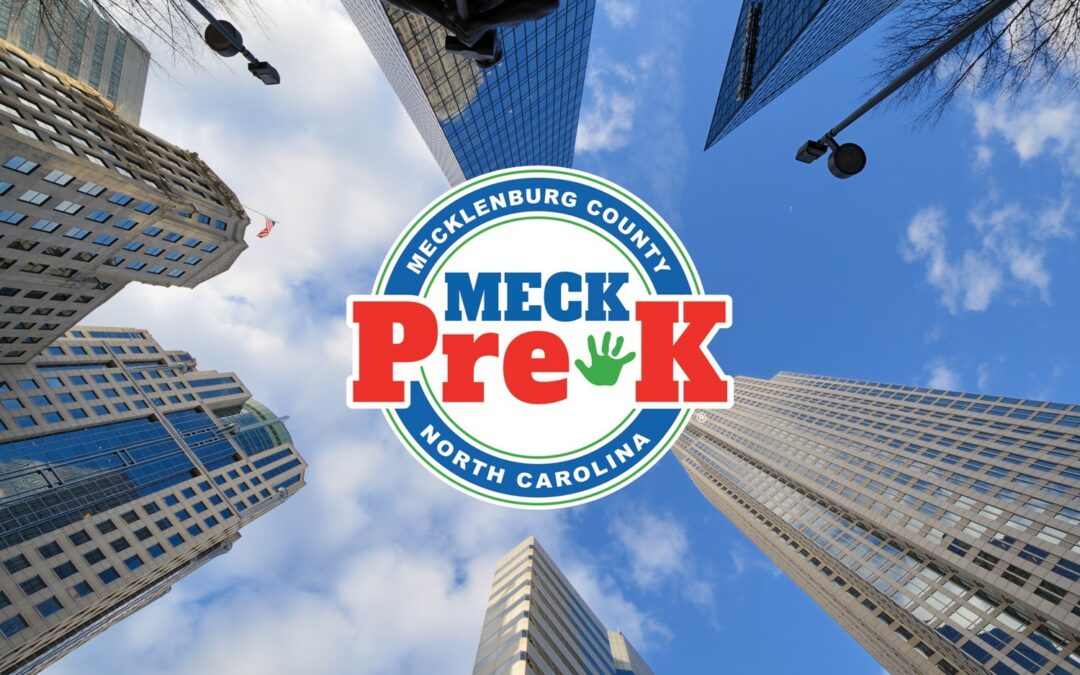
You may wonder, “Why does early education matter to me?” For those of us without a child under the age of five, pre-K may seem like a distant concept that doesn’t affect us very much. However, it turns out, a high quality early education benefits everyone in a community, not just young children and their families!
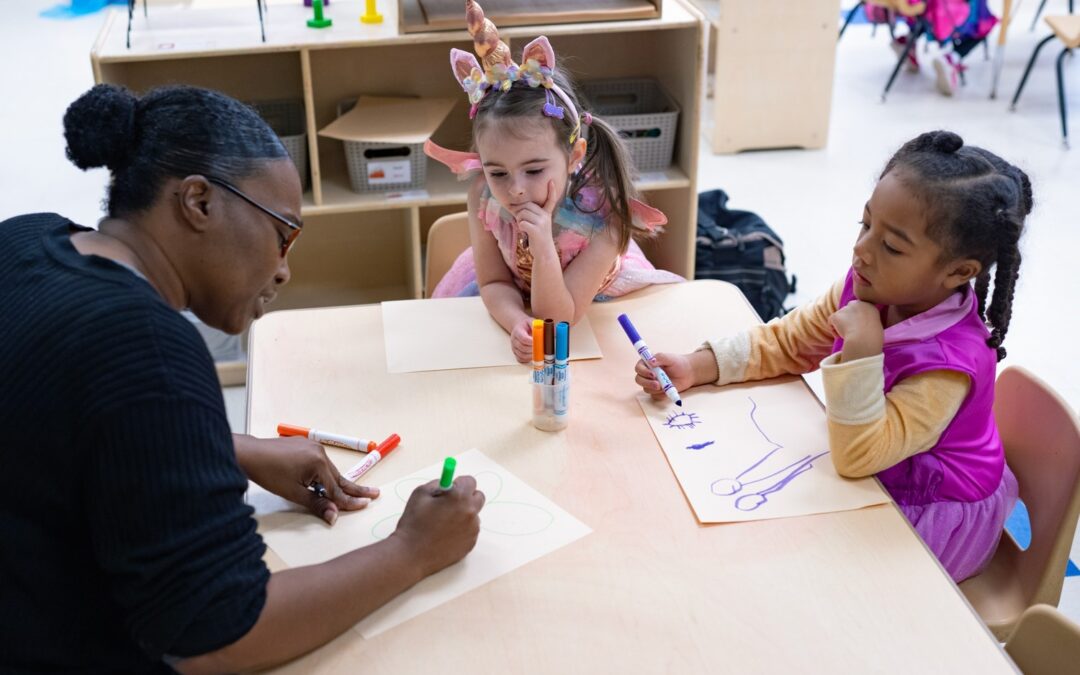
You may wonder, “Why should I send my child to pre-K? Why not just wait for kindergarten?” In this blog post, we will explain why pre-K matters, address some of your questions, and provide research and examples.
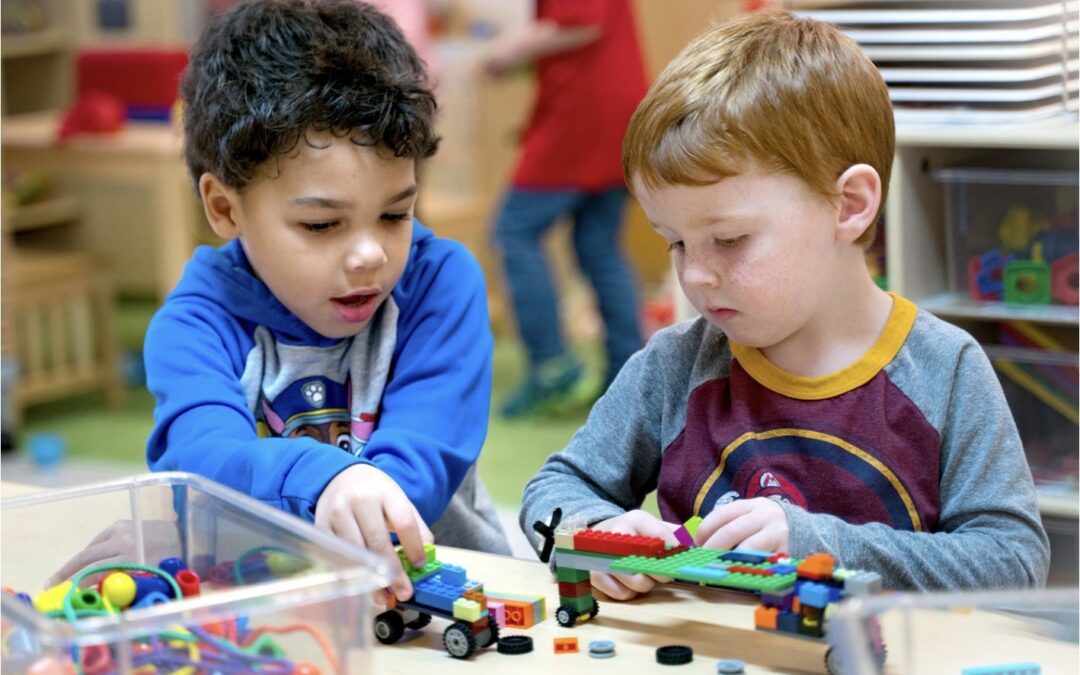
You may wonder, “Why should I send my child to pre-K? Why not just wait for kindergarten?” In this blog post, we will explain why pre-K matters, address some of your questions, and provide research and examples.

When your child is small, every little discovery is a learning opportunity to them. First, they discover their toes; then the bigger world around them. Then they start understanding your words and exploring their surroundings. Every child is different, and their learning journey is unique. But at some point, many parents may begin to wonder, “What’s next? Should I enroll my child in pre-K?” and, “Where do I start?”
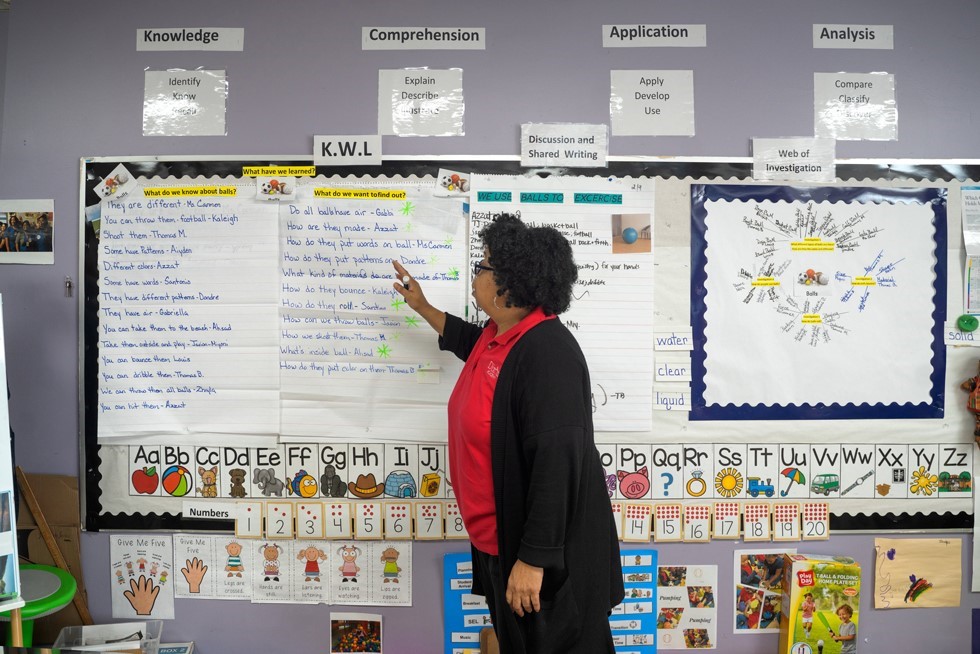
Have you ever wondered how pre-K teachers keep a classroom full of young children engaged for an entire school day? Do you feel exhausted just thinking about it? Well, fortunately, high-quality pre-K programs follow a specific curriculum that is designed to keep children engaged and learning all day, while leaving room for social time, play and discovery.
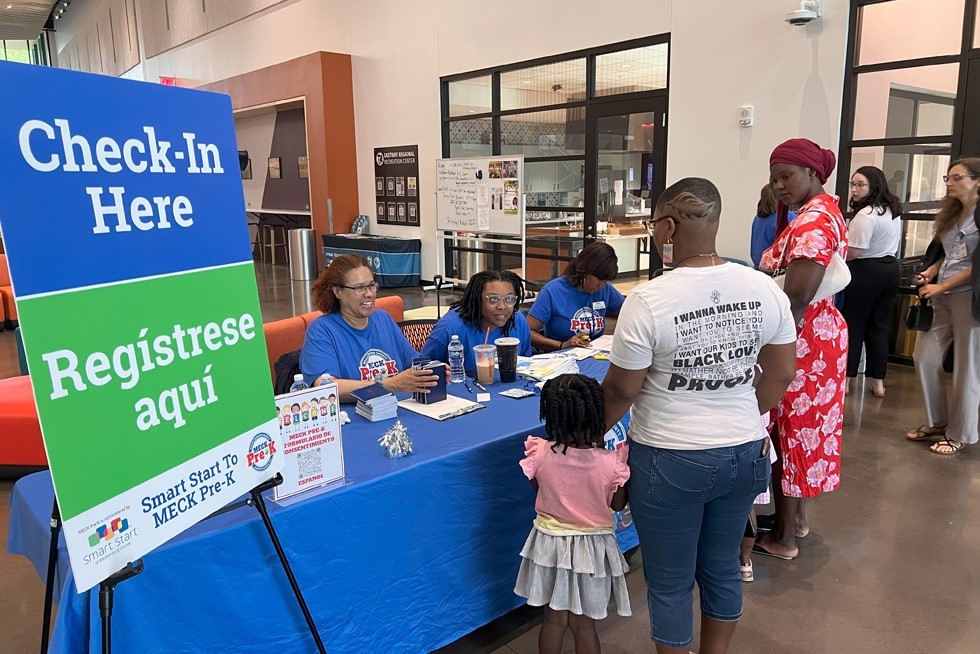
A high-quality pre-K program treats children like whole people, not just students who come and go from the classroom each day. Learning and growth happen all the time, whether children are at school, at home, on the playground or elsewhere. That’s why many pre-K programs offer support for families and students both inside and outside of the classroom.
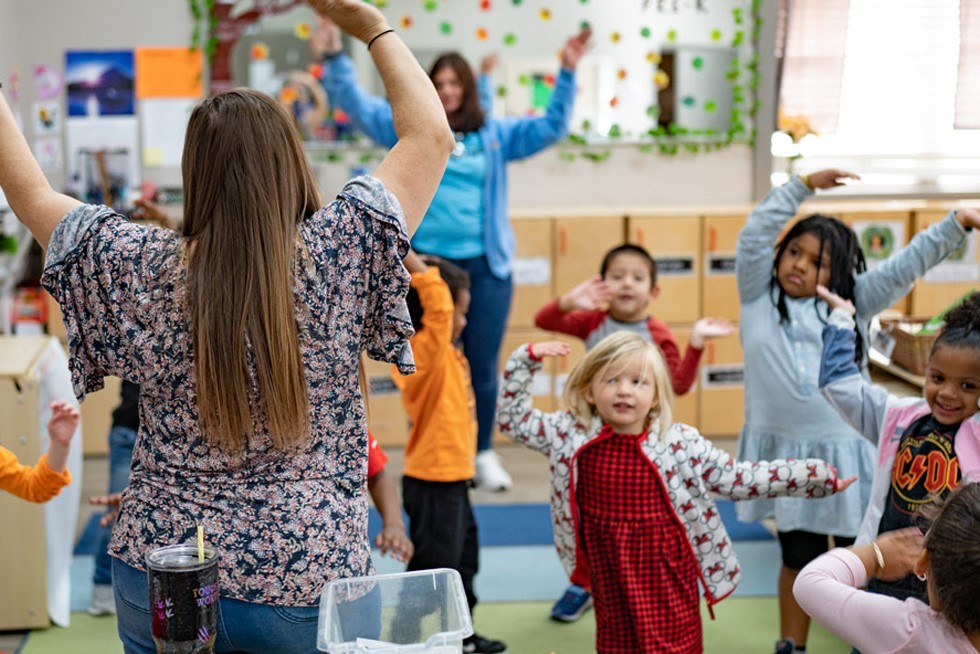
Have you ever wondered what it’s like to be a MECK Pre-K teacher? We went into classrooms to interview a few of our teachers and got the inside scoop on what they love best about teaching pre-K classes at MECK Pre-K!
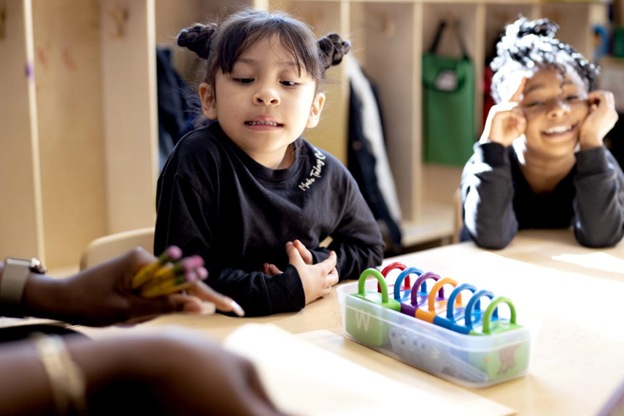
MECK Pre-K is one of three public pre-k programs available in Mecklenburg County. In order to ensure that all families in Mecklenburg County have the information they need to choose the best program for their children, we are providing a quick overview of the three programs, what they offer, and how they may be similar and different.
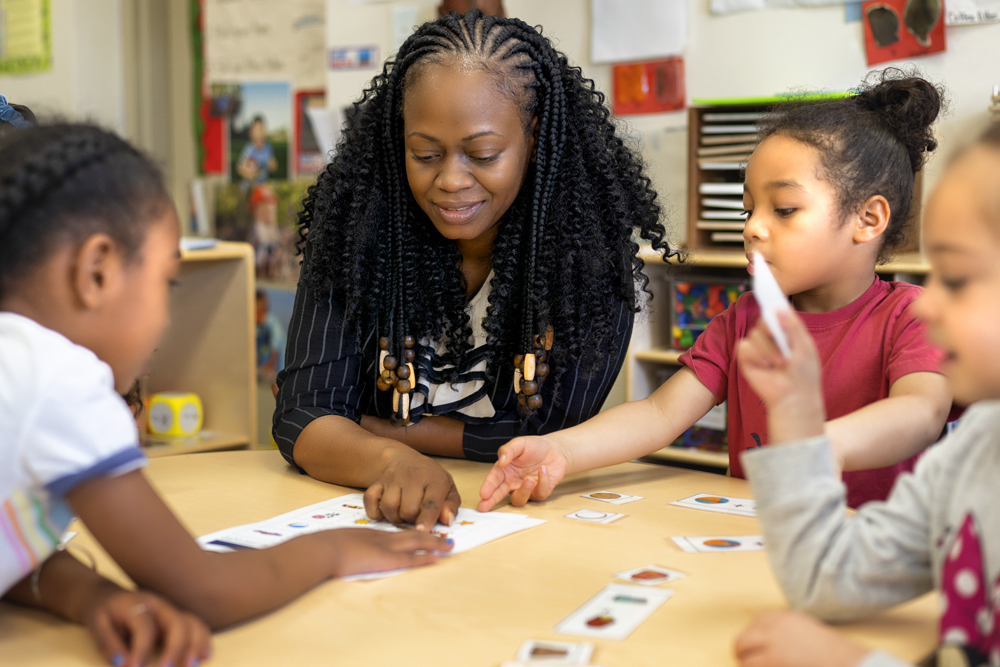
We know that early education is good for children and their development, but what does the latest research tell us about the specific benefits of pre-K?
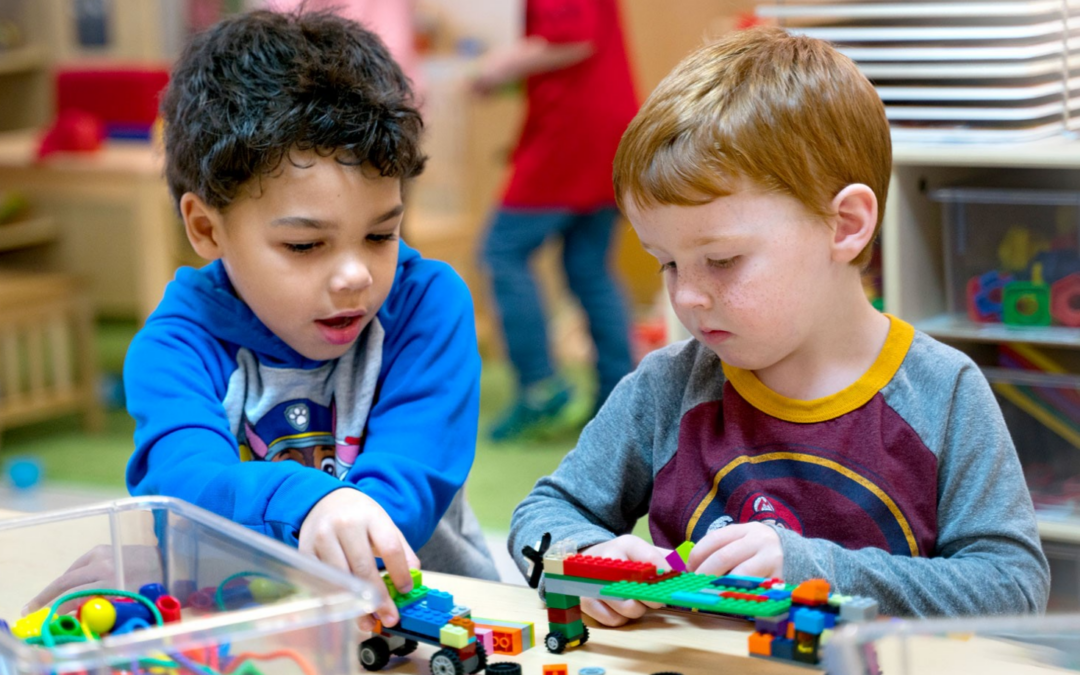
Many of today’s young children experienced have more social isolation during their early years due to the COVID-19 pandemic. So, what are some simple things that we can do to help encourage heathy development among today’s young children?
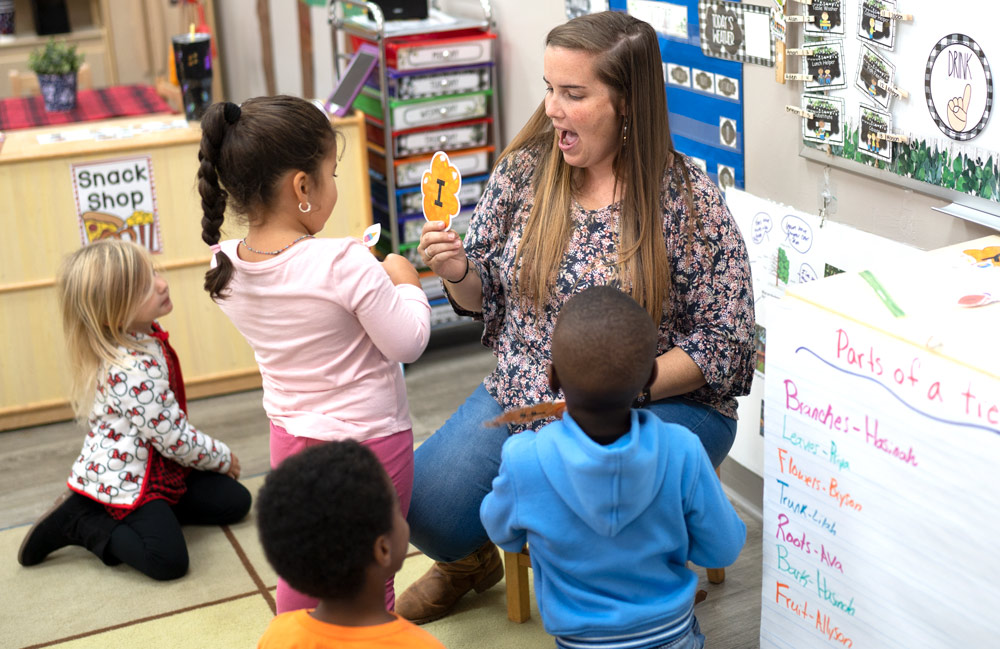
There are many ways to observe a child’s growth during the pre-K years. So much is happening for them intellectually, socially and emotionally, it’s almost like seeing a new child emerge every day! As they mature, a pre-K student may develop a broader vocabulary, begin to understand basic math, become more observant about the world around them, make friends, learn problem-solving skills, and so much more.